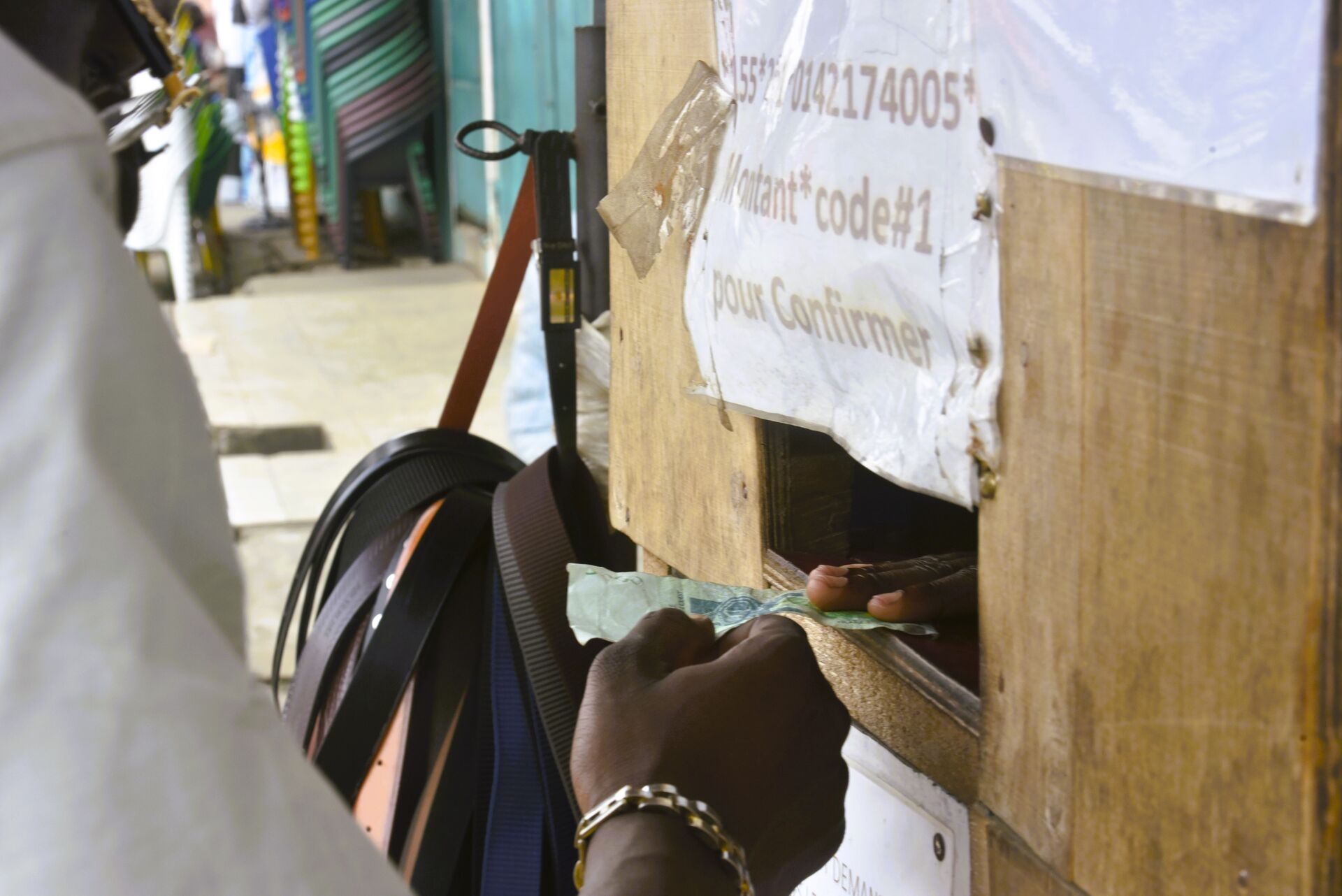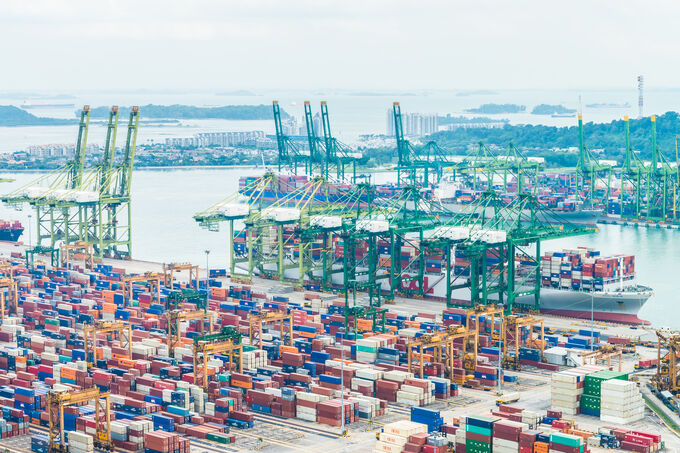
Articles
De la monnaie papier à la révolution numérique.
par Akinwale Goodluck, Directeur général adjoint, AfricaNenda Foundation - 1 novembre 2025


En Afrique de l’Ouest, le paysage économique et financier se transforme à un rythme soutenu. Si les transactions en monnaie fiduciaire restent encore omniprésentes, les paiements numériques connaissent aujourd’hui un essor fulgurant, redéfinissant la manière dont les entreprises et les particuliers effectuent leurs transactions. En 2024, le Nigeria a enregistré un volume record de ₦1,07 quadrillion (2,3 milliards de dollars) de transactions électroniques, soit une hausse de près de 80 % en un an. Au Ghana, les transactions via les services de paiements mobile ont atteint 3,02 milliards de GHS (196,7 milliards de dollars).
Cette dynamique se reflète dans le commerce quotidien, où les systèmes de paiement instantané (SPI) et les paiements mobiles deviennent la norme. Les échanges sont plus rapides, moins coûteux et plus sûrs. Le paiement digital s’impose désormais comme l’épine dorsale du commerce, reliant les zones urbaines et rurales, favorisant l’essor des petites entreprises et posant les bases d’une économie numérique véritablement inclusive.
Pourquoi la dépendance au cash freine l’inclusion financière en Afrique
Les économies dominées par l’argent liquide sont coûteuses à entretenir. Les banques centrales dépensent des sommes considérables pour imprimer, transporter et sécuriser les billets. L’informalité alourdit encore la facture : selon le rapport « World Employment and Social Outlook : Trends 2023 »1de l’Organisation internationale du Travail, environ 83 % des emplois en Afrique, et 85 % en Afrique subsaharienne, sont informels. Ces emplois échappent largement à l’impôt, ce qui prive les États de revenus essentiels pour le financement des secteurs de la santé, de l’éducation ou des infrastructures.
Les transactions en espèces rendent également plus difficile le suivi des flux économiques et la garantie de la transparence des dépenses publiques. En digitalisant les paiements gouvernementaux tels que les salaires, les subventions, et les marchés publics, les États peuvent renforcer la responsabilité et rétablir la confiance dans leurs systèmes financiers. Si l’argent liquide rassure, son utilisation excessive ralentit la dynamique économique. À l’inverse les paiements numériques accélèrent les échanges économiques, génèrent des données utiles pour l’accès au crédit et permettent aux petites entreprises de se connecter à des marchés plus vastes.
Pourquoi le cash résiste encore
Les obstacles ne sont pas seulement technologiques, mais aussi humains et structurels. Beaucoup d’Africains continuent de faire confiance à ce qu’ils peuvent tenir entre leurs mains, souvent à cause de mauvaises expériences financières ou après avoir été victimes de fraudes. Les faiblesses en matière de connectivité, le manque d’acceptation par les commerçants et des frais élevés sont également des freins à l’adoption des paiements numériques. Même dans des marchés matures comme le Kenya, le Nigéria ou le Ghana, de nombreux usagers reçoivent de l’argent via des applications de paiements numériques pour aussitôt le retirer en liquide. Sans accessibilité, confiance et simplicité, la promesse du numérique reste incomplète.
Construire des systèmes accessibles à tous
Pourtant, plusieurs pays africains prouvent qu’une politique volontariste peut changer la donne. Le système de transport public sans espèces du Rwanda2 a, par exemple, permis à des millions de personnes d’intégrer la finance formelle. Une initiative qui montre que la digitalisation des paiements est couronnée de succès lorsqu'elle est conçue dans un souci d'inclusion, c'est-à-dire lorsqu'elle réduit les coûts, soutient les moyens de subsistance et simplifie les transactions quotidiennes pour les citoyens ordinaires.
Au sein d’AfricaNenda Foundation, nous collaborons avec les banques centrales, les régulateurs, les opérateurs de systèmes de paiement et les acteurs de l’inclusion financière afin de lever les obstacles à l’accès au digital et d’accélérer le déploiement des Systèmes de Paiement Instantané Inclusifs (SPII) à travers le continent. Notre accompagnement s’étend de l’évaluation de capacités numériques à la conception et au déploiement de systèmes de paiement inclusifs, en passant par la fourniture d’assistance technique et de données pour faciliter une adoption à grande échelle. Nous favorisons également le dialogue politique, le benchmarking et le renforcement des capacités, afin de consolider l’écosystème et garantir que les systèmes de SPII bénéficient à tous les acteurs, des petites entreprises et des agriculteurs aux femmes entrepreneures.
Grâce à ce travail, nous construisons les rails numériques qui rendent l'inclusion possible. Nous investissons également dans les données et la recherche afin de suivre les progrès et de mettre en évidence les obstacles qui maintiennent les gens dans des systèmes basés sur l'argent liquide, des informations que nous partageons chaque année dans notre rapport sur l'état des systèmes de paiement instantané inclusifs (SIIPS) en Afrique.
La voie à suivre
Réduire la dépendance à l’argent liquide nécessitera un leadership audacieux et des investissements ciblés. Sur la base de l'expérience d'AfricaNenda dans le soutien aux gouvernements et aux acteurs de l'écosystème des paiements, cinq priorités peuvent accélérer les progrès :
- Digitaliser les paiements publics. Les gouvernements peuvent montrer l'exemple en veillant à ce que les salaires, les subventions sociales et les marchés publics soient traités par des SPII, améliorant ainsi la transparence et l'efficacité.
- Soutenir les petits commerçants. Réduire les coûts des procédures d'intégration, développer des outils numériques abordables et intégrer les commerçants informels et les petites entreprises dans des systèmes de paiement interopérables afin de favoriser la croissance.
- Alléger les contraintes réglementaires. Digitaliser taxes, permis et redevances pour alléger la charge administrative et encourager les entreprises à opérer de manière formelle.
- Créer un cadre favorable. Une réglementation claire et inclusive et des cadres régionaux d'interopérabilité sont essentiels pour attirer les investissements et favoriser l'innovation, domaines dans lesquels AfricaNenda continue d'apporter son soutien technique et son plaidoyer.
- Mesurer ce qui compte. Des données fiables, comme celles du rapport SIIPS, aident les décideurs politiques à suivre les progrès, à identifier les lacunes et à concevoir des interventions fondées sur des données probantes.
De l’exclusion à l’autonomisation
Sortir du tout-espèces, est un moyen de renforcer l'autonomie. Les systèmes de paiement instantané inclusifs offrent aux femmes une plus grande autonomie financière, aident les petites entreprises à se développer et permettent aux communautés rurales de participer pleinement aux marchés nationaux et régionaux, inspirant ainsi une nouvelle vague de croissance économique et d'opportunités.
La mission d’AfricaNenda Foundation est de rendre cette transformation inclusive, durable et de la porter à grande échelle. Nous travaillons avec des partenaires tels que les banques centrales, les décideurs politiques, les prestataires de services financiers numériques et les opérateurs de SPI afin de garantir que, d'ici 2030, plus de 260 millions d'Africains supplémentaires aient accès instantanément à des paiements numériques abordables. Notre expertise et notre expérience en matière d'inclusion financière font de nous un partenaire de confiance dans cette aventure.
À l’approche du lancement du rapport SIIPS 2025, AfricaNenda Foundation invite tous les acteurs de l’écosystème financier à s’impliquer dans cette transformation. Les conclusions du rapport SIIPS 2025 offriront une feuille de route pour accélérer la transition de l'Afrique vers une économie numérique véritablement inclusive.


